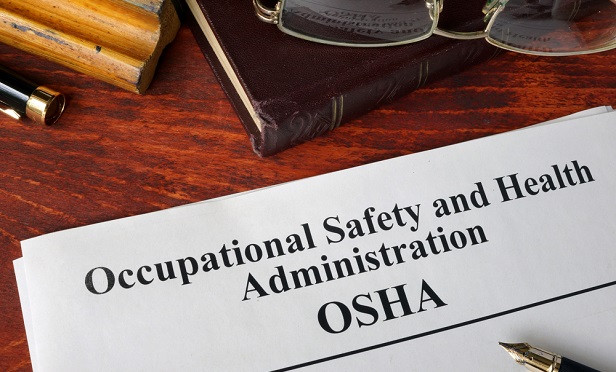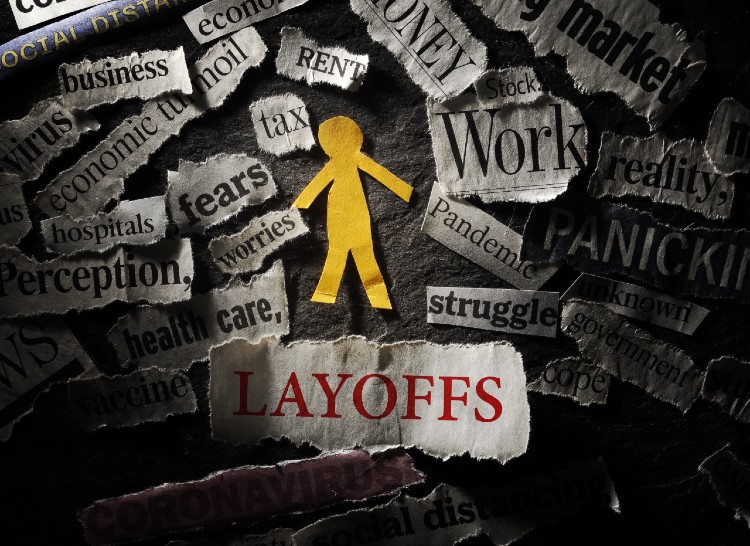
Employers have a lot on their minds right now, but they should pay close attention to ensure their actions don't trigger more trouble down the road.

1. WARN Act claims
The Workers Adjustment and Retraining Notification Act requires employers with at least 100 full-time workers who are laying off at least 50 workers during a 30-day period (“Plant closing”) to provide at least 60 days’ notice before layoffs. But given the sudden shift in the economy and the mandatory closure or slowdown of businesses, as well as the day-to-day development related to coronavirus, 60 days is more than man employers can spare.
”The announcement of layoffs will likely result in a number of claims relating to compliance with WARN Act and similar state laws, including questions of whether certain exemptions apply,” Schmidt writes.

2. Wage & hour claims
With the sudden and unplanned switch to work-from-home arrangements, many companies may not have had time to adequately spell out policies and expectations for employees.
Writes Schmidt: “As a result of employees working remotely, standard operating procedures and controls relating to meal and rest breaks have been disrupted. A lack of adequate recordkeeping and oversight increases the risk of wage and hour claims, including overtime pay. The use of personal equipment for business purposes triggers questions and claims relating to companies’ reimbursement policies.”

3. Employee safety and claims
“Companies have been required to balance urgent business needs with employee health and safety during the crisis,” Schmidt writes. “There will likely be class actions relating to exposures to the virus in the workplace. In addition, the stress of the pandemic and resulting mental health needs will increase the likelihood of individual as well as class claims.”

4. ERISA claims
401(k) plans have taken a major hit across the board, and some people will be wondering if their advisors should have been doing more to protect them against the loss. “Any down market prompts greater scrutiny of past fiduciary decisions,” Writes Schmidt, pointing to the impact that the recent verdict in Retirement Plans Committee of IBM v. Jander, will have.

5. Employee medical privacy claims
One of your team members notifies you that they’ve tested positive for COVID-19. What do you do? Do you share this information publicly with the rest of their team so they’re aware of their own exposure? How you handle employees’ medical information will undoubtedly come under careful scrutiny in the coming months.
“Employee privacy claims are likely to follow as the manner in which companies handle sensitive information concerning employees’ medical diagnosis is questioned,” Schmidt writes. “This includes internal as well as external reporting. If employee records, normally maintained on a secured server, are accessed and stored outside of the normal environment, there are risks relating to unauthorized access to private information and resulting privacy claims.”

6. Disparate impact layoffs claims
For many companies, layoffs and downsizing will be unavoidable in the comping months. What can be avoided, though, is claims of discrimination, if such layoffs are carefully and prudently planned.
”As companies address the need for layoffs and furloughs, the disparate impact of decisions on who is retained and who is terminated will face scrutiny, opening the door to possible claims for age discrimination,” Schmidt writes.
Transitioning to a work-from-home model. Furloughing and laying off workers. Complying with new regulations from the CARES and Families First Coronavirus Response Acts. Protecting employees’ personal medical information while ensuring the health and safety of the overall workforce.
These are just a few of the legal landmines employers are dealing with these days. The COVID-19 coronavirus and the resulting economic upheaval represent uncharted territory for many employers. As they grapple with balancing concern for employee safety while keeping business running, they’ll be forced to make some unpleasant decisions. Undoubtedly, those decisions will be met with criticism and potential lawsuits.
Related: Employers’ many legal questions about coronavirus, answered
Earlier this week, the family of a Walmart employee who died from COVID-19 filed a wrongful death suit against the retail giant, alleging the company ignored the man when he reported to his manager that he was feeling ill. Should the company have done more to ensure employees’ safety?
“The fact that there are only a handful of employee claims filed should not be read as indicative of a lack of future claims from employees,” writes Kent Schmidt, a partner at Left Coast Law. “There is a general consensus that there will be many employee class actions.”
Schmidt expects that employment-related lawsuits will align with six broad categories, all of which employers should be aware of and consider as they plan for layoffs and other changes to their business model. What are they? Check out the slideshow above to find out.
Read more:




 Home
Home















 Copyright © 2025 ALM Global, LLC. All Rights Reserved.
Copyright © 2025 ALM Global, LLC. All Rights Reserved.